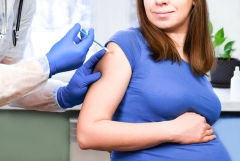A single molecular switch is essential for blood stem cells to enter an activated, regenerative state in which they produce new blood cells, according to a preclinical study led by Weill Cornell Medicine investigators. The discovery could lead to more effective bone marrow transplants and gene therapies.
Stem cells are immature cells that have a basic regenerative role in virtually all tissues. They normally exist in a quiescent, slowly dividing state, but after an injury can replace tissue by switching to an activated state in which they multiply rapidly and turn into mature, functional cells.
The researchers, in a study published Feb. 25 in Nature Immunology, found that a DNA transcription-regulating protein called FLI-1 has a critical role in this regenerative process for blood stem cells, which are mostly resident in the bone marrow until they are stimulated or “mobilized” to move into the bloodstream. They showed that transiently producing FLI-1 in quiescent adult mobilized bone marrow stem cells activates them so that they swiftly expand their numbers and have a better chance of being transplanted successfully into a new host.







